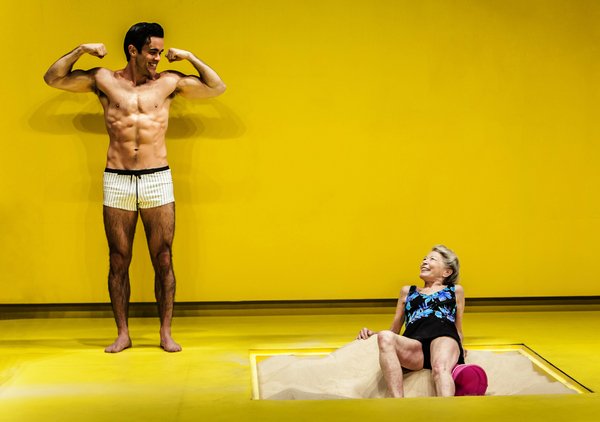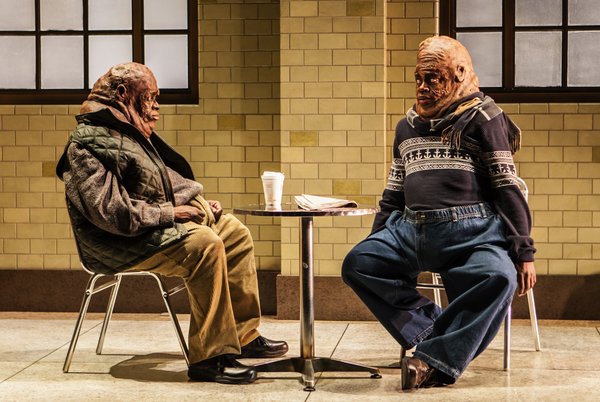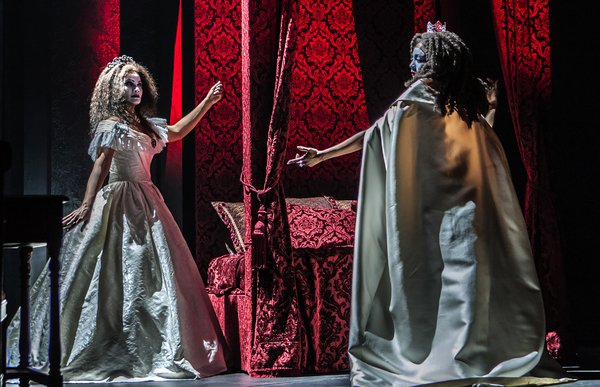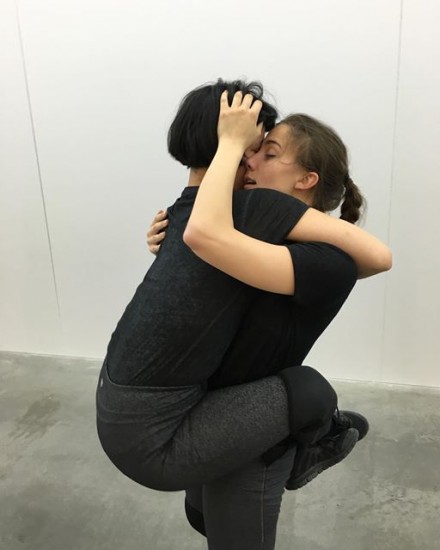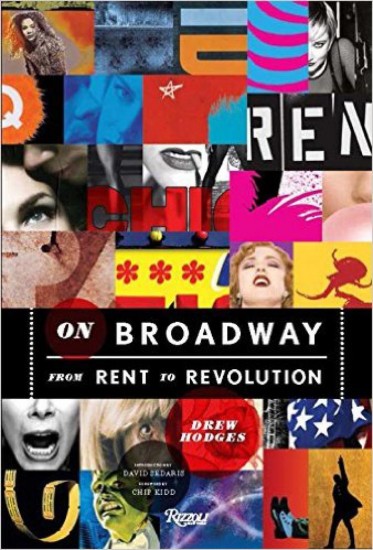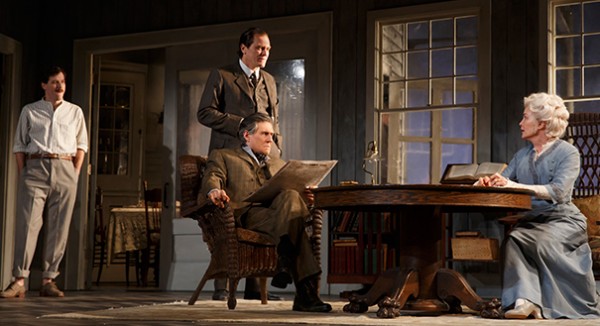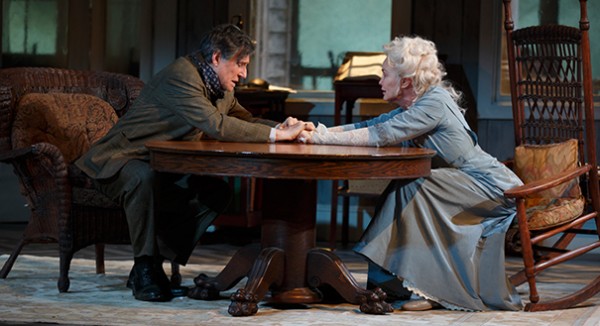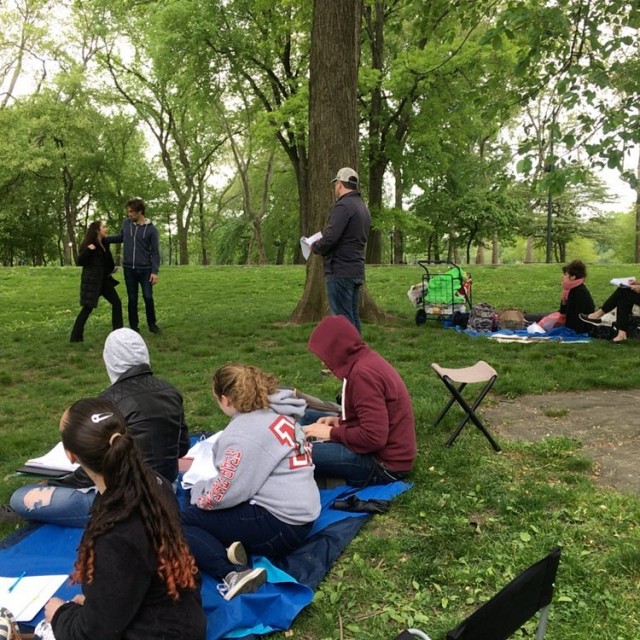
You can catch New York Classical rehearsing MIDSUMMER NIGHT’S DREAM in Central Park
It might be hard to top the naked version of The Tempest that was recently staged in Central Park by the Outdoor Co-ed Topless Pulp Fiction Appreciation Society, but New York Classical Theatre, Smith Street Stage, Hudson Warehouse, the Manhattan Shakespeare Project, Hip to Hip, the Public Theater, River to River, SummerStage, and others will be presenting clothed works in honor of the four hundredth anniversary of the death of the Bard. Don’t miss out on this city tradition or, as Will wrote in Sonnet 65: “O, how shall summer’s honey breath hold out / Against the wreckful siege of batt’ring days, / When rocks impregnable are not so stout, / Nor gates of steel so strong, but Time decays?” (Keep watching this space as more shows are announced.)
Daily through May 30
New York Classical Theatre: A Midsummer Night’s Dream, open rehearsals, Central Park, 103rd St. & Central Park West, 12 noon – 5:30 pm
Tuesday, May 24
through
Sunday, June 26
Shakespeare in the Park: The Taming of the Shrew, starring JCandy Buckley, Donna Lynne Champlin, Morgan Everitt, Rosa Gilmore, Judy Gold, LaTanya Richardson Jackson, Cush Jumbo, Teresa Avia Lim, Janet McTeer, Adrienne C. Moore, Anne L. Nathan, Gayle Rankin, Pearl Rhein, Leenya Rideout, Jackie Sanders, Stacey Sargeant, and Natalie Woolams-Torres, directed by Phyllida Lloyd, Delacorte Theater, Central Park, 8:00
Tuesday, May 31
through
Sunday, June 5
New York Classical Theatre: A Midsummer Night’s Dream, Central Park, 103rd St. & Central Park West, 7:00
Thursday, June 2
through
Sunday, June 5
Hudson Warehouse: Much Ado About Nothing, directed by Nicholas Martin-Smith, Soldiers’ and Sailors’ Monument, Riverside Park, 6:30
Tuesday, June 7
through
Sunday, June 12
Manhattan Shakespeare Project: Al’ukhraa: A Study in Othello, directed by Sarah Eismann, Astoria Park, 6:00
Wednesday, June 8
through
Saturday, June 11
Inwood Shakespeare Festival: The Two Gentlemen of Verona, Moose Hall Theatre Company, directed by Ted Minos, Inwood Hill Park Peninsula, 7:30
Wednesday, June 8
through
Sunday, June 12
Shakespeare in Carroll Park: The Tempest, Smith Street Stage, directed by Beth Ann Hopkins, bring your own seating, Carroll Park, 7:30
Thursday, June 9
through
Sunday, June 12
New York Classical Theatre: A Midsummer Night’s Dream, Central Park, 103rd St. & Central Park West, 7:00
Thursday, June 9
through
Sunday, June 12
Hudson Warehouse: Much Ado About Nothing, directed by Nicholas Martin-Smith, Soldiers’ and Sailors’ Monument, Riverside Park, 6:30
Wednesday, June 15
through
Saturday, June 18
Inwood Shakespeare Festival: The Two Gentlemen of Verona, Moose Hall Theatre Company, directed by Ted Minos, Inwood Hill Park Peninsula, 7:30
Wednesday, June 15
through
Sunday, June 19
Shakespeare in Carroll Park: The Tempest, Smith Street Stage, directed by Beth Ann Hopkins, bring your own seating, Carroll Park, 7:30
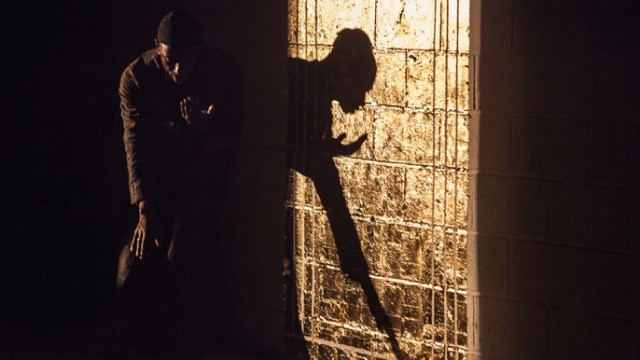
Kaneza Schaal will GO FORTH on Governors Island in June (photo by Maria Baranova)
Thursday, June 16
through
Sunday, June 19
River to River Festival: Go Forth, by Kaneza Schaal, Arts Center, Governors Island, Building 110, advance RSVP required, 2:30 or 4:30
Thursday, June 16
through
Sunday, June 19
New York Classical Theatre: A Midsummer Night’s Dream, Central Park, 103rd St. & Central Park West, 7:00
Thursday, June 16
through
Sunday, June 19
Hudson Warehouse: Much Ado About Nothing, directed by Nicholas Martin-Smith, Soldiers’ and Sailors’ Monument, Riverside Park, 6:30
Wednesday, June 22
through
Saturday, June 25
Inwood Shakespeare Festival: The Two Gentlemen of Verona, Moose Hall Theatre Company, directed by Ted Minos, Inwood Hill Park Peninsula, 7:30
Wednesday, June 22
through
Sunday, June 26
Shakespeare in Carroll Park: The Tempest, Smith Street Stage, directed by Beth Ann Hopkins, bring your own seating, Carroll Park, 7:30
Thursday, June 23
through
Friday, June 24
Manhattan Shakespeare Project: Al’ukhraa: A Study in Othello, directed by Sarah Eismann, Summit Rock, Central Park, 6:00
Thursday, June 23
through
Sunday, June 26
Hudson Warehouse: Much Ado About Nothing, directed by Nicholas Martin-Smith, Soldiers’ and Sailors’ Monument, Riverside Park, 6:30
Thursday, June 23
through
Sunday, June 26
New York Classical Theatre: A Midsummer Night’s Dream, Central Park, 103rd St. & Central Park West, 7:00
Saturday, June 25
River to River Festival: Open Studios with Kaneza Schaal, Arts Center, Governors Island, Building 110, advance RSVP required, 2:30
Saturday, June 25
and
Sunday, June 26
Manhattan Shakespeare Project: Al’ukhraa: A Study in Othello, directed by Sarah Eismann, Morningside Park, 6:00
Wednesday, June 29
through
Saturday, July 2
New York Classical Theatre: A Midsummer Night’s Dream, Nelson A. Rockefeller Park in Battery Park City, 7:00
Wednesday, June 29
through
Sunday, July 17
New York Classical Theatre: The Winter’s Tale, open rehearsals, meet at Castle Clinton, Battery Park, 12 noon – 5:30 pm
Thursday, June 30
through
Sunday, July 3
Hudson Warehouse: Lysistrata: “Let’s Make America Great Again,” by Aristophanes, adapted and directed by Susane Lee, Soldiers’ and Sailors’ Monument, Riverside Park, 6:30
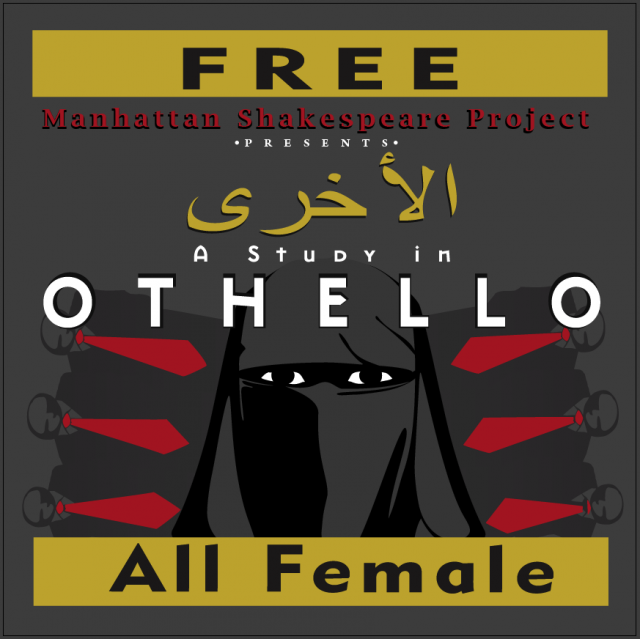
Wednesday, July 6
through
Sunday, July 10
New York Classical Theatre: A Midsummer Night’s Dream, Prospect Park, 7:00
Thursday, July 7
Broadway in Bryant Park (Wicked, Stomp, The Color Purple, Matilda), Bryant Park lawn, 12:30
Thursday, July 7
through
Sunday, July 10
Manhattan Shakespeare Project: Al’ukhraa: A Study in Othello, directed by Sarah Eismann, Summit Rock, Central Park, 6:00
Thursday, July 7
through
Sunday, July 10
Shakespeare in the Parking Lot: A Midsummer Night’s Dream, the Drilling Company, directed by Cathy Curtiss, Clemente Soto Velez Cultural and Educational Center, 114 Norfolk St., 8:00
Thursday, July 7
through
Sunday, July 10
Hudson Warehouse: Lysistrata: “Let’s Make America Great Again,” by Aristophanes, adapted and directed by Susane Lee, Soldiers’ and Sailors’ Monument, Riverside Park, 6:30
Friday, July 8
through
Sunday, July 31 (excluding Mondays)
SummerStage: The Classical Theatre of Harlem presents Macbeth, directed by Carl Cofield and starring Ty Jones, Marcus Garvey Park, 8:00 (Fridays 8:30)
Tuesday, July 12
Thursday, July 14
through
Sunday, July 17
New York Classical Theatre: A Midsummer Night’s Dream, Carl Schurz Park, 7:00
Thursday, July 14
Broadway in Bryant Park (Chicago, The Fantastiks, Motown, Finding Neverland), Bryant Park lawn, 12:30
Thursday, July 14
through
Sunday, July 17
Manhattan Shakespeare Project: Al’ukhraa: A Study in Othello, directed by Sarah Eismann, Morningside Park, 6:00
Thursday, July 14
through
Sunday, July 17
Hudson Warehouse: Lysistrata: “Let’s Make America Great Again,” by Aristophanes, adapted and directed by Susane Lee, Soldiers’ and Sailors’ Monument, Riverside Park, 6:30
Thursday, July 14
through
Sunday, July 17
Shakespeare in the Parking Lot: A Midsummer Night’s Dream, the Drilling Company, directed by Cathy Curtiss, Clemente Soto Velez Cultural and Educational Center, 114 Norfolk St., 8:00

Smith Street Stage will present THE TEMPEST in Carroll Park (photo by Chris Montgomery)
Monday, July 18
through
Sunday, August 7 (excluding Thursdays)
New York Classical Theatre: The Winter’s Tale, meet at Castle Clinton, Battery Park, 7:00
Tuesday, July 19
through
Sunday, August 14
Shakespeare in the Park: Troilus and Cressida, directed by Daniel Sullivan, Delacorte Theater, Central Park, 8:00
Thursday, July 21
Broadway in Bryant Park (Fiddler on the Roof, Les Miserables, Fuerza Bruta, The Marvelous Wonderettes, Paramour), Bryant Park lawn, 12:30
Thursday, July 21
through
Sunday, July 24
Shakespeare in the Parking Lot: A Midsummer Night’s Dream, the Drilling Company, directed by Cathy Curtiss, Clemente Soto Velez Cultural and Educational Center, 114 Norfolk St., 8:00
Thursday, July 21
through
Sunday, July 24
Hudson Warehouse: Lysistrata: “Let’s Make America Great Again,” by Aristophanes, adapted and directed by Susane Lee, Soldiers’ and Sailors’ Monument, Riverside Park, 6:30
Wednesday, July 27
through
Sunday, August 28
Hip to Hip Theatre Company: As You Like It and Julius Caesar, performed in repertory in parks across the city, including Agawam Park, Crocheron Park, Cunningham Park, Flushing Meadows Corona Park, Fort Greene Park, Gantry Plaza State Park, Harlem Meer, Socrates Sculpture Park, Sunnyside Gardens Park, and Van Cortlandt Park, preceded by Kids & the Classics, Wednesday – Sunday at different times
Thursday, July 28
Broadway in Bryant Park (Waitress, Natasha, Pierre and the Great Comet of 1812, Kinky Boots, Fun Home, Himself & Nora), Bryant Park lawn, 12:30
Thursday, July 28
through
Sunday, July 31
Hudson Warehouse: Othello, directed by Nicholas Martin-Smith, Soldiers’ and Sailors’ Monument, Riverside Park, 6:30
Thursday, July 28
through
Sunday, July 31
Shakespeare in the Parking Lot: The Merchant of Venice, the Drilling Company, Clemente Soto Velez Cultural and Educational Center, 114 Norfolk St., 8:00
Thursday, August 4
Broadway in Bryant Park (Beautiful, An American in Paris, Avenue Q, Holiday Inn), Bryant Park lawn, 12:30
Thursday, August 4
through
Sunday, August 7
Hudson Warehouse: Othello, directed by Nicholas Martin-Smith, Soldiers’ and Sailors’ Monument, Riverside Park, 6:30
Thursday, August 4
through
Sunday, August 7
Shakespeare in the Parking Lot: The Merchant of Venice, the Drilling Company, Clemente Soto Velez Cultural and Educational Center, 114 Norfolk St., 8:00
Monday, August 8
through
Sunday, August 14 (excluding Thursdays)
New York Classical Theatre: The Winter’s Tale, meet at Bargemusic on Pier 1, Brooklyn Bridge Park, 7:00
Thursday, August 11
Broadway in Bryant Park (Phantom of the Opera, Something Rotten!, Cagney, Ruthless!), Bryant Park lawn, 12:30
Thursday, August 11
through
Sunday, August 14
Hudson Warehouse: Othello, directed by Nicholas Martin-Smith, Soldiers’ and Sailors’ Monument, Riverside Park, 6:30
Thursday, August 11
through
Sunday, August 14
Shakespeare in the Parking Lot: The Merchant of Venice, the Drilling Company, Clemente Soto Velez Cultural and Educational Center, 114 Norfolk St., 8:00
Thursday, August 18
through
Sunday, August 21
Hudson Warehouse: Othello, directed by Nicholas Martin-Smith, Soldiers’ and Sailors’ Monument, Riverside Park, 6:30
Wednesday, August 31
SummerStage: Chicago the Musical: 20th Anniversary Concert, Rumsey Playfield, Central Park, 8:0

 Award-winning husband-and-wife documentarians D. A. Pennebaker and Chris Hegedus have been collaborating for forty-five years, working on films about such subjects as Bill Clinton’s presidential campaign (The War Room), Carol Burnett (Moon over Broadway), soul music (Only the Strong Survive), pastry chefs (Kings of Pastry), and Elaine Stritch (Elaine Stritch at Liberty). For their latest film, Unlocking the Cage, they spent three years following animal rights lawyer Steven M. Wise, the president and founder of the Nonhuman Rights Project, as he sought to establish “personhood” for several chimpanzees in order to free them from their caged existence and move them to more acceptable animal sanctuaries. Wise and his team, Natalie Prosin and attorneys Elizabeth “Liddy” Stein and Monica Miller, scour the internet searching for chimpanzees to represent as well as sanctuaries where the animals can be released. (The Nonhuman Rights Project focuses on great apes, elephants, and such cetaceans as dolphins and whales because of their autonomy, intelligence, and emotional capacity.) The concept is fascinating, and the film hits its high points when Pennebaker and Hegedus show some of the chimpanzees interacting with humans in compelling ways, watching television or figuring something out on a computer. Unfortunately, far too much of Unlocking the Cage deals with often murky legal discussions and courtroom arguments that drag on and on.
Award-winning husband-and-wife documentarians D. A. Pennebaker and Chris Hegedus have been collaborating for forty-five years, working on films about such subjects as Bill Clinton’s presidential campaign (The War Room), Carol Burnett (Moon over Broadway), soul music (Only the Strong Survive), pastry chefs (Kings of Pastry), and Elaine Stritch (Elaine Stritch at Liberty). For their latest film, Unlocking the Cage, they spent three years following animal rights lawyer Steven M. Wise, the president and founder of the Nonhuman Rights Project, as he sought to establish “personhood” for several chimpanzees in order to free them from their caged existence and move them to more acceptable animal sanctuaries. Wise and his team, Natalie Prosin and attorneys Elizabeth “Liddy” Stein and Monica Miller, scour the internet searching for chimpanzees to represent as well as sanctuaries where the animals can be released. (The Nonhuman Rights Project focuses on great apes, elephants, and such cetaceans as dolphins and whales because of their autonomy, intelligence, and emotional capacity.) The concept is fascinating, and the film hits its high points when Pennebaker and Hegedus show some of the chimpanzees interacting with humans in compelling ways, watching television or figuring something out on a computer. Unfortunately, far too much of Unlocking the Cage deals with often murky legal discussions and courtroom arguments that drag on and on.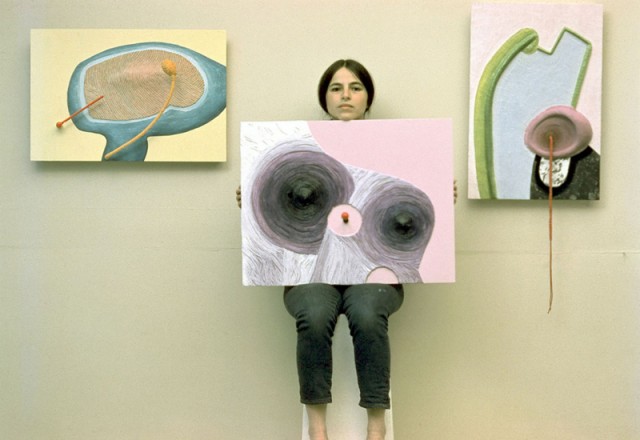
 “All of my stakes are in my work. I have given up in all else. I do feel I am an artist, and one of the best. I do, deeply,” German artist Eva Hesse explains in Eva Hesse, the debut feature by Marcie Begleiter, which is being brought back by popular demand for two screenings per day from May 25 through June 9 at Film Forum, following runs there and at Cinema Village. Begleiter, who has previously written the play Meditations: Eva Hesse and directed the short film Eva Hesse, Walking the Edge, examines Hesse’s too-brief life and career, as she dealt with feelings of alienation and deep loss through her art. “The power of her purpose was more important than what was going on in her life,” fellow artist and friend Rosie Goldman points out. Born in Germany in 1936, Hesse was determined to be an artist from an early age, first turning to drawing and painting, then to sculpture. The film features narration taken from Hesse’s journals, interviews, and letters between her, her main confidant, Sol LeWitt, and her father, William; Eva is voiced by Selma Blair, LeWitt by Patrick Kennedy, and William by Bob Balaban. Begleiter speaks with such contemporaries of Hesse’s as Richard Serra, Carl Andre, Nancy Holt, Dan Graham, Mike Todd, Roberth Mangold, Sylvia Plimack Mangold, and Hesse’s husband, Tom Doyle, who seems a little too trite given how they eventually parted. She also meets with Whitney curator and Hesse scholar Elisabeth Sussman, photographer Barbara Brown, art writer Lucy Lippard, and Hesse’s sister, Helen Hesse Charash, who sheds light on her sibling’s difficult childhood. But at the center of it all is Hesse’s inspiring art, which challenged the status quo as Expressionism shifted into Minimalism. “I will paint against every rule,” Hesse wrote, and she took that approach with all of her creations, including sculptures made of latex, metal, fiberglass, wire, and other industrial materials. The film firmly sets Hesse within the framework of the tumultuous era in which she worked, the 1960s, a time of great social and artistic change, but she still comes off as a lonely woman who could express herself only through her art. It’s both a sad and exhilarating documentary, a paean to the critical role art can play in life.
“All of my stakes are in my work. I have given up in all else. I do feel I am an artist, and one of the best. I do, deeply,” German artist Eva Hesse explains in Eva Hesse, the debut feature by Marcie Begleiter, which is being brought back by popular demand for two screenings per day from May 25 through June 9 at Film Forum, following runs there and at Cinema Village. Begleiter, who has previously written the play Meditations: Eva Hesse and directed the short film Eva Hesse, Walking the Edge, examines Hesse’s too-brief life and career, as she dealt with feelings of alienation and deep loss through her art. “The power of her purpose was more important than what was going on in her life,” fellow artist and friend Rosie Goldman points out. Born in Germany in 1936, Hesse was determined to be an artist from an early age, first turning to drawing and painting, then to sculpture. The film features narration taken from Hesse’s journals, interviews, and letters between her, her main confidant, Sol LeWitt, and her father, William; Eva is voiced by Selma Blair, LeWitt by Patrick Kennedy, and William by Bob Balaban. Begleiter speaks with such contemporaries of Hesse’s as Richard Serra, Carl Andre, Nancy Holt, Dan Graham, Mike Todd, Roberth Mangold, Sylvia Plimack Mangold, and Hesse’s husband, Tom Doyle, who seems a little too trite given how they eventually parted. She also meets with Whitney curator and Hesse scholar Elisabeth Sussman, photographer Barbara Brown, art writer Lucy Lippard, and Hesse’s sister, Helen Hesse Charash, who sheds light on her sibling’s difficult childhood. But at the center of it all is Hesse’s inspiring art, which challenged the status quo as Expressionism shifted into Minimalism. “I will paint against every rule,” Hesse wrote, and she took that approach with all of her creations, including sculptures made of latex, metal, fiberglass, wire, and other industrial materials. The film firmly sets Hesse within the framework of the tumultuous era in which she worked, the 1960s, a time of great social and artistic change, but she still comes off as a lonely woman who could express herself only through her art. It’s both a sad and exhilarating documentary, a paean to the critical role art can play in life.



